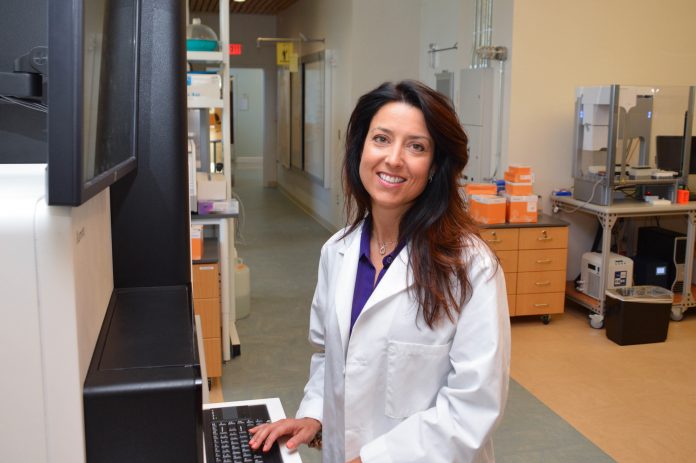National Heart, Lung and Blood Institute has awarded the Oklahoma Medical Research Foundation $1.1 million to expand on an existing study into sarcoidosis, a rare immune disease that predominantly affects African Americans.
In 2012, OMRF scientist Courtney Montgomery, Ph.D., received a five-year, $4 million grant from the National Institutes of Health to research sarcoidosis. With this additional funding, her research team will be able to conduct additional genetic testing to better understand the roots of the disease, which led to the deaths of actor-comedian Bernie Mac and NFL Hall of Fame defensive lineman Reggie White.
In sarcoidosis, cells in the immune system that cause inflammation overreact and cluster together to form tiny lumps called granulomas. If too many of these granulomas form in a single organ, this can cause the organ to malfunction or even fail.
“Granulomas, which are essentially little tumors, can form in the eyes, liver, skin, lungs, brain, or almost anywhere in the body,” said Montgomery.
Montgomery said sarcoidosis strikes 39 in 100,000 African Americans, versus only 5 in 100,000 Caucasians. A recent study showed that the mortality rate, particularly among women, is climbing close to 7 percent.
“It affects African Americans both more frequently and more severely than it does other groups,” she said. “We set out to investigate the genetics of sarcoidosis in a large group of African-American patients and their family members, including healthy controls.”
With the new funding, Montgomery will sequence the entire genomes of 615 African Americans to look for genetic markers, or predictors, of the disease.
By examining the entire human genome, said Montgomery, scientists will be able to assemble a comprehensive picture of genetic variation. “Even though we are all human and share a huge amount of our DNA, we all have something a little bit different. So when we can look at every single piece of DNA in a group of sarcoidosis patients and compare it to every piece of DNA from a group of healthy people, then we can better understand what is causing that disease.”
The funding for this study comes from grant No. R01 HL113326-04 from the NHLBI, part of the National Institutes of Health.












